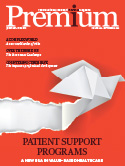Japan: Revenue fall in 2016 for Life

Top Japanese life insurers sustained an estimated 16 percent decline in combined domestic premium income in the fiscal year ended March, as the Bank of Japan’s (BOJ) negative interest rate policy weighed on their investment income.
The four biggest players — Dai-ichi Life Holdings, Nippon Life Insurance, Meiji Yasuda Life Insurance and Sumitomo Life Insurance — likely generated a combined JPY14.7 trillion (USD131 billion) or so in insurance premiums in Japan in fiscal 2016. That represents a roughly JPY2.7 trillion plunge from a year earlier, the sharpest drop since after the 2008 global financial crisis.
As market interest rates fell after the BOJ adopted negative rates, life insurers were forced to raise premiums or halt sales of lump-sum whole life insurance policies. Sales of various policies via bank counters and through sales agents also decreased. But weaker sales were due in part to insurance companies’ strategic decisions to reduce offerings. Consequently, base profits, which indicate earnings from their main operations, are believed to have grown at Meiji Yasuda and possibly at others.
To make up for weaker domestic sales, Japanese life insurers are focusing on expanding their overseas businesses stated a Nikkei report.





































